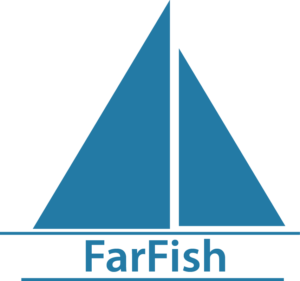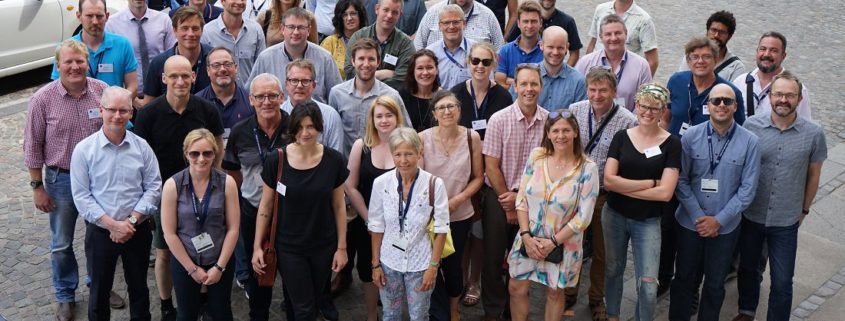FarFish at the Workshop on Science and Industry Initiatives
From the 24-26, June, the FarFish project, represented by Sonia Doblado from the Long Distance Advisory Council (LDAC), attended the Workshop on Science and Industry Initiatives (WKSCINDI), organised by the International Council for the Exploration of the Seas (ICES) at their headquarters in Copenhagen, Denmark. The meeting was attended by 50 participants from several countries from a variety of backgrounds, including fishermen, operators, technologists, scientists and NGOs. The aim of the workshop was to provide ICES with an up to date overview on the roles that industry can play in delivering scientific information relevant to ICES advice and marine research. A roadmap was produced for measurable steps toward the inclusion and application of scientific data from industry.
An overview of the ICES work, the actual situation of the science-industry collaboration and the path that led to this workshop was given by the two co-Chairs of the workshop, Jon Elson (Cefas) and Steven Mackinson (SPFA). Special mention was made to the fact that the workshop filled the room and they have to turn applicants away, and that there was a lot of new participants in attendance. These are signs of the willingness to collaborate that exists in the fisheries community.
During the workshop, several stakeholders presented projects made possible through science-industry collaboration. The most commented were projects involved self-sampling and observer schemes, such as the Herring lottery sampling presented by Håkon Otterå (Institute of Marine Research, Norway), the Joint Science-Industry Observer scheme (Kenny Coull, NWWAC), the industry-science partnership to the 2018 North West Atlantic Mackerel Population Assessment (Meghan Lapp, Seafreeze Ltd.) and the PFA self-sampling program (Martin Pastoors).
From the first discussion exercise, it was already agreed by the participants that the main things necessary for the inclusion and application of scientific data from industry in ICES work were:
-Standardization of data protocols (for both data collection and data management). These protocols have to be very carefully planned and designed, and industry representatives should be able to have a say.
-Constant communication: that includes feedback to the industry, and the fact that feedback should be made as soon as possible, without having to wait for official reports. This communication could be helped by having national focal points dedicated to science-industry collaboration. It is important to note that policy makers should be included in the loop.
-Incentives. The industry is willing to collaborate, but data collection costs time and money. Incentives can be economic, but can also include the opportunity to improve the management of the fisheries of interest.
-The industry has the willingness and the capacity to collaborate to gather more and better data. It is crucial to define how can that information get into the scientific system.
-Data does not relate only to catch data (length, weight, age). The industry can gather much more, such as acoustic and oceanographic data. Scientists should create a clear strategy on how and what to collect, and on how that data is going to be used. That includes data ownership and the GDPR.
The knowledge and experiences shared in this workshop will help the FarFish project to effectively develop a self-sampling protocol as part of Work Packages 2 and 4, with the collaboration of operators and crew through the entire process (from protocol design to sampling). The protocol aims to find a cost-effective way of identifying two species of black hake (M. polli and M. senegalensis) in Mauritanian waters. It is proposed to use fin-clipping as a self-sampling method, and the molecular analysis results will then be compared with the visual identification that the crew carry out. Learn more about this aspect of the project in FarFish Deliverable 2.4.




